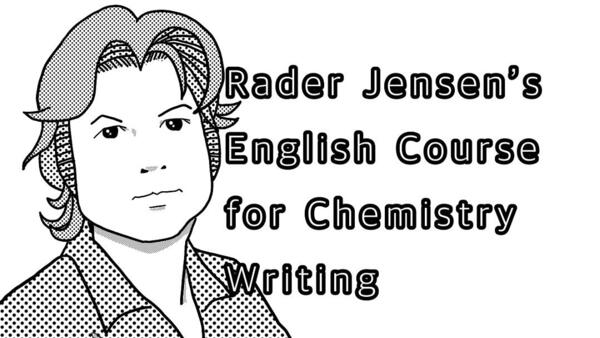CSJ Journals
[化学論文のための英語講座] 第25回:助動詞 shall
(English version is here.)
「shall」は現在形ですが、未来の予定や期待という意味を持ちます。「shall」と「will」はほぼ同じように使われますが、「shall」は「will」より少し丁寧な印象を与えます(契約書では「shall」と「should」は命令を意味します)。過去形の「should」は過去を述べるだけではなく、予定、期待、お勧めという意味もあります。例文を見てみましょう。
1. Acids shall be stored separately from bases.
訳文:酸は塩基と別に保管します。(命令や規則)
2. Safety glasses shall be worn at all times in the laboratory.
訳文:実験室では常に保護メガネを着用する必要があります。(命令や規則)
3. Work benches should be kept clean.
訳文:実験台はキレイにしましょう。(強いお勧め)
4. We shall report further progress in future publications.
訳文:今後の論文でさらなる進展を報告します。(予定、期待)
5. Swern oxidation should be sufficient for transforming the alcohol to the ketone.
訳文:アルコールをケトンに変換するには、スワーン酸化で十分でしょう。(期待)
[補足] 「shall」と「should」は他の助動詞より研究論文ではあまり使われません。
次回は「助動詞must」です。
Shall is present tense, but describes future plans or expectations. Shall and will are largely used in the same way, however, shall gives a slightly more polite impression than will. (In contracts and legal documents, shall and should indicate a rule or order.) The past tense should describes not only the past, but also plans, expectations, and recommendations. Let us look at a few examples.
1. Acids shall be stored separately from bases.
Explanation: This describes an order or rule.
2. Safety glasses shall be worn at all times in the laboratory.
Explanation: This also describes an order or rule.
3. Work benches should be kept clean.
Explanation: This describes a strong recommendation.
4. We shall report further progress in future publications.
Explanation: This describes a plan or expectation.
5. Swern oxidation should be sufficient for transforming the alcohol to the ketone.
Explanation: This describes an expectation.
Supplement:
In research papers, shall and should are generally used less than other auxiliary verbs.
At next time, we will discuss the auxiliary verb must.
